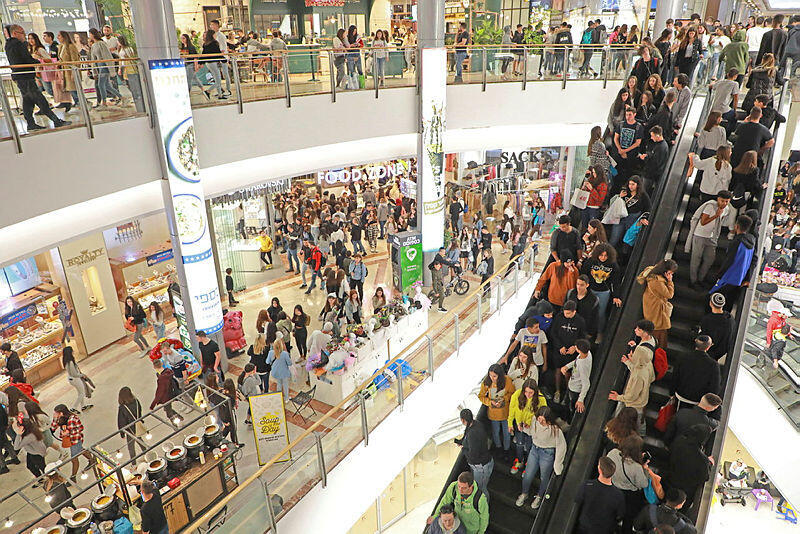Israelis are not traveling abroad because of the war and compensate themselves by shopping in Israel, according to the 2024 first quarter reports of the mall companies Melisron, Azrieli, Castro and Max Stock. All of them presented an impressive increase in sales and profits.
Are we experiencing an economic miracle? That – despite the war, the budget deficit, the wave of price increases and the expectation of tax increases – the Israeli consumer has more money and his purchasing power is soaring? The Melisron company presented a net profit of 244 million shekels, a 44% increase compared to the same period last year, and a 6% jump in revenues, though not only from malls.
Melisron CEO Ophir Sarid tried to explain the paradox.
"Despite the challenging period and the uncertainty, there was an increase in rent payments in the company's malls in the months of January-April and a 7% increase in the number of visitors. The reason is, among other things, the decrease in the number of people going abroad compared to the period before the war. The skies are not as open as before, and we see and feel the impact. When billions of shekels of citizens go abroad shopping malls and trade are affected."
Now, in fact, the situation is reversed. This does not mean that our financial situation has improved, but that the purchases we made around the world have been reduced and are being made in the Israeli market.
The Castro company, which has experienced difficulties and a decrease in market share in recent years, reported a significant increase of 15% in sales, which amounted to 434 million shekels, and a net profit of 4 million shekels, compared to a loss of 32 million shekels in the corresponding quarter. Castro recorded a 44% increase in cosmetics sales, due to the opening of new stores, and the fact that fewer consumers go through duty free. An aggressive streamlining program that the company has been going through for the past two years also contributed to the improved results.
Azrieli Malls present a similar picture. Proceeds in January-April increased by 11%, and the net profit from all the group's businesses amounted to 464 million shekels – a jump of 20%.
At Max Stock, which sells a variety of discounted home products, net profit rose in the first quarter by 24% to 26 million shekels, and revenues rose by 12% to 313 million shekels.
Temporary compensation
"From the data of the reports, one might think that we are a country with an economic boom, but this is absolutely not the case," a senior official in the trade industry told Ynet. "What will happen when they return to flying abroad? The Israeli consumer suffers every day from the cost of living, and for giving up traveling around the world, he is compensating by shopping in Israel. In the end it will turn around. I'm afraid that like the Roadrunner from the cartoons, that runs and runs and then looks down for a moment and sees the abyss and crashes, if the economic-security-political situation continues as it is, this may also happen to the Israeli consumer."


